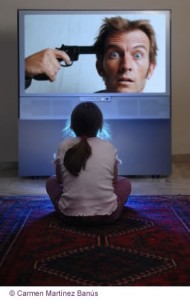
istockphoto

istockphoto
Interest in play is very much on the upswing among psychologists, educators,and the general public , according to developmental psychologist Peter Gray.
“People are beginning to realize that we have gone too far in the direction of teaching children to compete,” he said. “We have been depriving children of the normal, noncompetitive forms of social play that are essential for developing a sense of equality, connectedness, and concern for others.”
A new theory about early human adaptation suggests that our ancestors capitalized on their capacities for play to enable the development of a highly cooperative way of life. Writing in the current edition of the interdisciplinary American Journal of Play, Gray suggests that use of play helped early humans to overcome the innate tendencies toward aggression and dominance which would have made a cooperative society impossible. [continue reading…]
Adolescents and young adults typically consider peer relationships to be all important. However, it appears that strong family support, not peer support, is protective in reducing future suicidal behavior among young adults when they have experienced depression or have attempted suicide.
New research that will be presented here April 17 at the annual meeting of the American Association of Suicidology shows that high school depression and a previous suicide attempt were significant predictors of thinking about suicide one or two years later. But, those individuals who had high levels of depression or had attempted suicide in high school were less likely to engage in suicidal thinking if they had strong family support and bonds. In addition, having a current romantic partner also reduced suicidal thoughts. [continue reading…]
Is the turmoil we see in our teens something that our culture has created? The excellent All in the Mind, presented by Natasha Mitchell,covers what happens to teenagers as their brain develops.
Monosyllabic, messy, self-conscious and sleepy – science now has the tumultuous teenager in its sights. Are they risk-takers with brains still under construction? Or competent adults grossly misinterpreted by modern science? From evolutionary theories to the bright lights of the brain scan – a provocative debate is being waged.
![]() Link to listen to this podcast
Link to listen to this podcast
Source: All in the mind
We’d love to hear what you think? Do you agree – is teenage turmoil something that we have created as a culture? Or do you think biology is the main influence on teenagers behaviour?